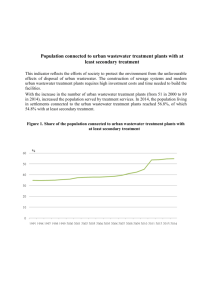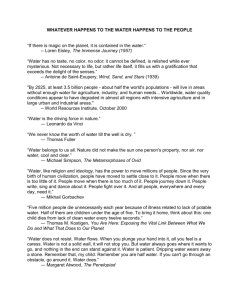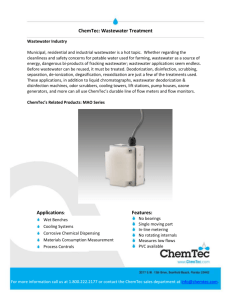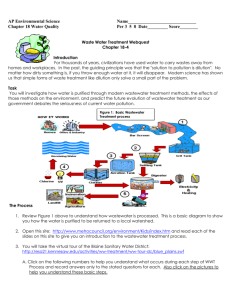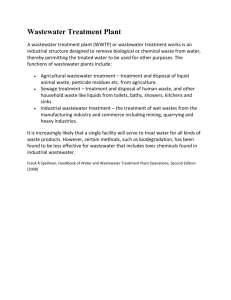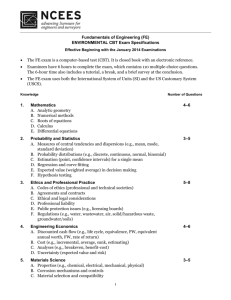UEE2207 Wastewater Treatment System Planning
advertisement
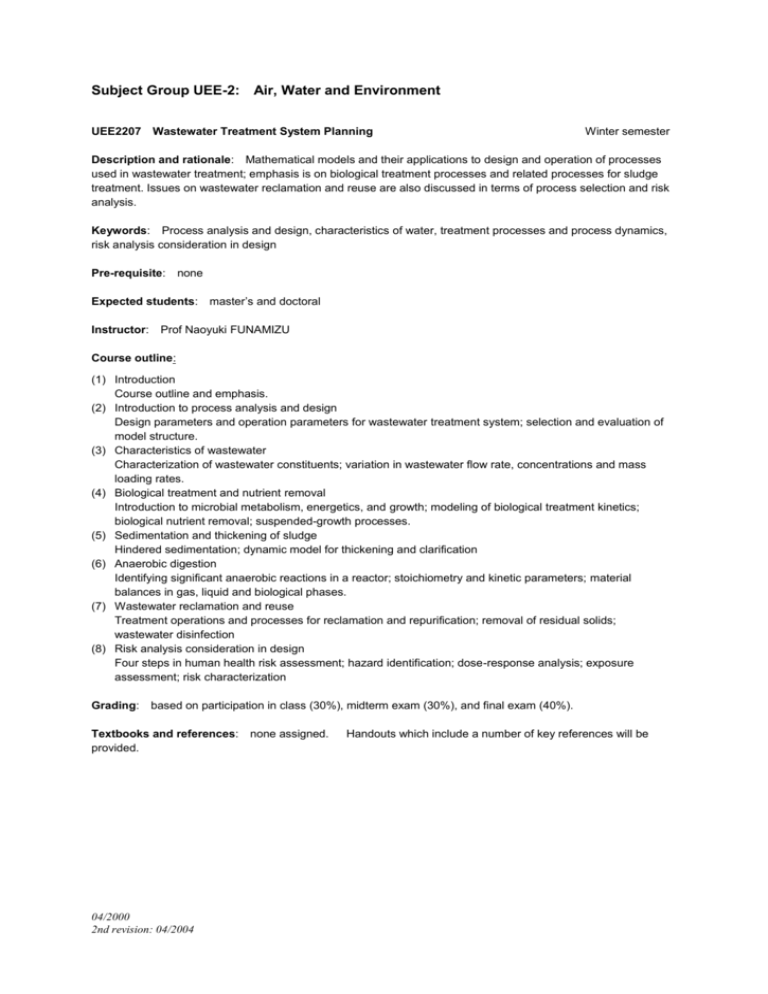
Subject Group UEE-2: Air, Water and Environment UEE2207 Wastewater Treatment System Planning Winter semester Description and rationale: Mathematical models and their applications to design and operation of processes used in wastewater treatment; emphasis is on biological treatment processes and related processes for sludge treatment. Issues on wastewater reclamation and reuse are also discussed in terms of process selection and risk analysis. Keywords: Process analysis and design, characteristics of water, treatment processes and process dynamics, risk analysis consideration in design Pre-requisite: none Expected students: master’s and doctoral Instructor: Prof Naoyuki FUNAMIZU Course outline: (1) Introduction Course outline and emphasis. (2) Introduction to process analysis and design Design parameters and operation parameters for wastewater treatment system; selection and evaluation of model structure. (3) Characteristics of wastewater Characterization of wastewater constituents; variation in wastewater flow rate, concentrations and mass loading rates. (4) Biological treatment and nutrient removal Introduction to microbial metabolism, energetics, and growth; modeling of biological treatment kinetics; biological nutrient removal; suspended-growth processes. (5) Sedimentation and thickening of sludge Hindered sedimentation; dynamic model for thickening and clarification (6) Anaerobic digestion Identifying significant anaerobic reactions in a reactor; stoichiometry and kinetic parameters; material balances in gas, liquid and biological phases. (7) Wastewater reclamation and reuse Treatment operations and processes for reclamation and repurification; removal of residual solids; wastewater disinfection (8) Risk analysis consideration in design Four steps in human health risk assessment; hazard identification; dose-response analysis; exposure assessment; risk characterization Grading: based on participation in class (30%), midterm exam (30%), and final exam (40%). Textbooks and references: provided. 04/2000 2nd revision: 04/2004 none assigned. Handouts which include a number of key references will be

